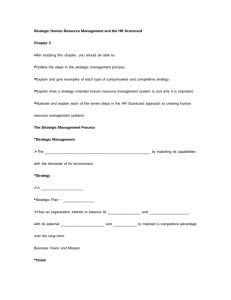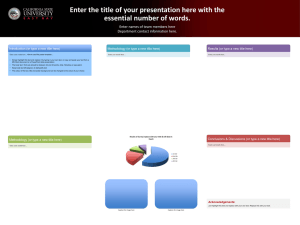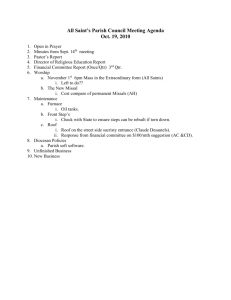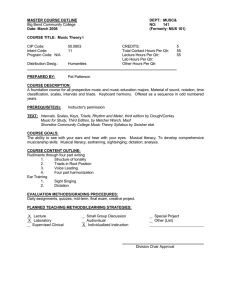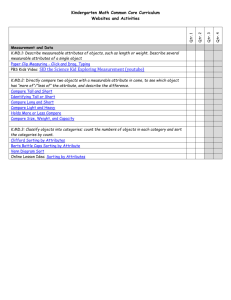haring Financial Information with Employee Owners
advertisement
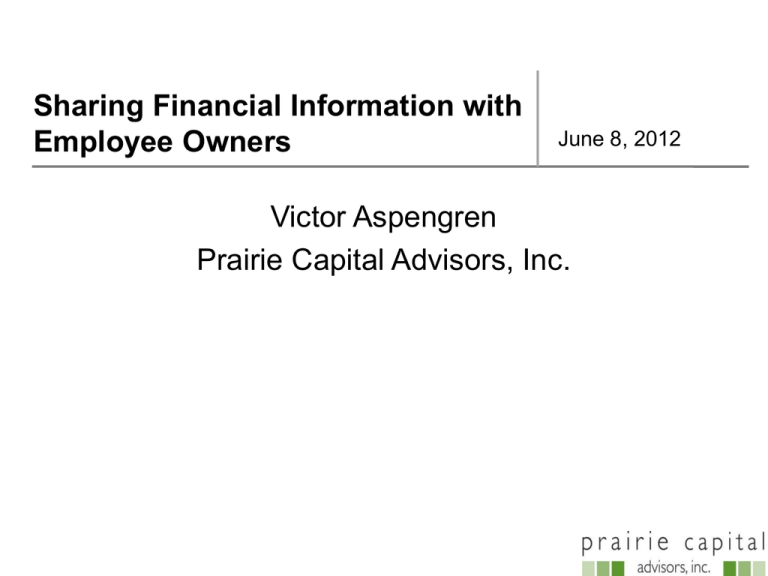
Sharing Financial Information with Employee Owners June 8, 2012 Victor Aspengren Prairie Capital Advisors, Inc. The Purpose Of A Business MAKE MONEY SELL THE BUSINESS RELATIONSHIPS ARE ADULT TO ADULT IMPROVE EMPLOYEE’S LIVES Barriers To Good Business People do not feel safe Lack of trust Poor communication Not understanding the numbers of business Lack of education/training The blame game Gossip Joys Of Business Feels like family Great friendships Share in ownership Personal growth Having fun Where Would You Invest Just a job….. People think, act and feel like owners What Open Book Is Every Employee is given the measures of business success and taught to understand them is expected to use their knowledge to improve performance has a direct stake in the company's success What Open Book Is Not Program-of-the-Month Total disclosure Rigid formula Entitlement Equity The Great Game of Business Model The Great Game of Business Critical Number – Operational or financial number that represents a weakness or vulnerability that if not addressed and corrected will negatively impact the overall performance and long-term security of the business. It is a weakness or vulnerability, measurable, performance yardstick and a rallying point. The Critical Number Choose the Critical Number Default first critical number is Profit! What does winning mean in the next 6 to 12 months? What will greatly impact business success or sustainability? Set the improvement target What is the desired outcome? Reasonable and achievable? Too complex? Is it clear and understandable? Will it provide an early WIN? Will it cause any unintended consequences? The Critical Number Find the Right Drivers – The Key Drivers What will drive the CRITICAL NUMBER? What will greatly impact the desired outcome? Why? 5x Begin to forecast/predict the outcome? Place a Mini-Game on the Key Driver 30 to 90 days Other considerations Educational? How much influence does the team have over it? Practices of the Game Know & Teach the Rules High Involvement Planning Business Literacy (formal approach) Follow the Action & Keep Score Scoreboards Huddling Provide a Stake in the Outcome Recognition Mini-Games Annual Incentive Plan Employee Ownership Follow The Action & Keep Score Develop a score card, they are used to track, measure, and report key operational financial numbers. They can be work group, department, division, corporate. This encourages goal setting, mutual accountability, performance management Keeps the players involved, motivated, and focused. Develop a simple Scorecard Corporate Scorecard Line of Sight Sally’s Scorecard Workgroup Scorecard Income Statement Revenue Purchasing Materials Price Variances Expenses Materials Price Variances Product XYZ Department Scorecard Profit (loss) The Huddle • • • • Weekly Huddle 30 minutes Consistent reporting format so people know what to expect Atmosphere – Controlled by chairperson – Learning is emphasized – Questions encouraged, gripes/complaints discouraged Bonus Plan Tied to improving the value of the business Understandable Educates employees and changes behaviors Enhances standard of living Achievable, but is a stretch Frequent payout and regularly communicated Self-funded Encourages teamwork (places competitor outside the business) Shared targets (Win or lose together as a team) Mindful of cash flow and business fluctuations Bonus Plan 10-20-30-40 Quarterly Bonus Period 1st Qtr. Period Pay Out 10% YTD Pay Out 10% 2nd Qtr. 20% 30% 3rd Qtr. 30% 60% 4th Qtr. 40% 100% Developing Mini-Games Choose the game Participants define the target Set the improvement goal Determine the timeframe Participants decide on the prize Develop a theme and design the scoreboard Play the game Celebrate the win Potential Mini-Game Targets Billable hours Product yield Re-work Scrap Sales/gross margin New customers Recruiting Customer satisfaction Production man hours Average collection days Inventory accuracy Work-in-progress On-time delivery Reducing overhead Average sales Labor efficiency Sample Mini-Game Scoreboard for the Ups & Downs Sales Department Additional Sales Daily Month -To - Date of Neon Yellow Yo -yos Week 1 Week 2 Week 3 Week 4 Total Goal Actual Goal Actual Checklist for a Good Mini-Game Establish clear line of sight Rules are clear & simple Easily measured & scored with a simple, meaningful scoreboard Scorekeeper to settle disputes Incorporate business training to aid understanding reasons for change Frequent scoring for constant reinforcement Competition against the problem, not each other Scoring rewards positive outcomes, rather than penalty scoring Benefits Of Sharing Financials Improves trust & creates a common language Stronger feelings of ownership Facilitates communication Intelligent decision making Breaks down barriers Reasons behind the actions Encourages involvement Contact Information Victor Aspengren Prairie Capital Advisors, Inc. vaspengren@prairiecap.com www.prairiecap.com 515-689-5969 Page 23
